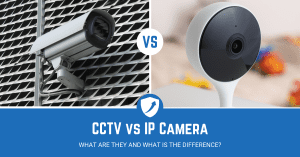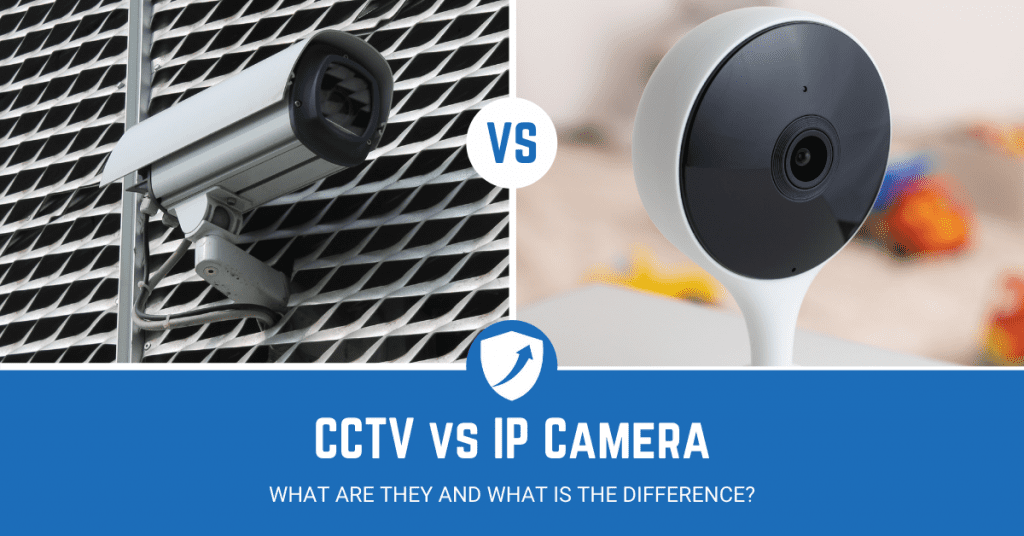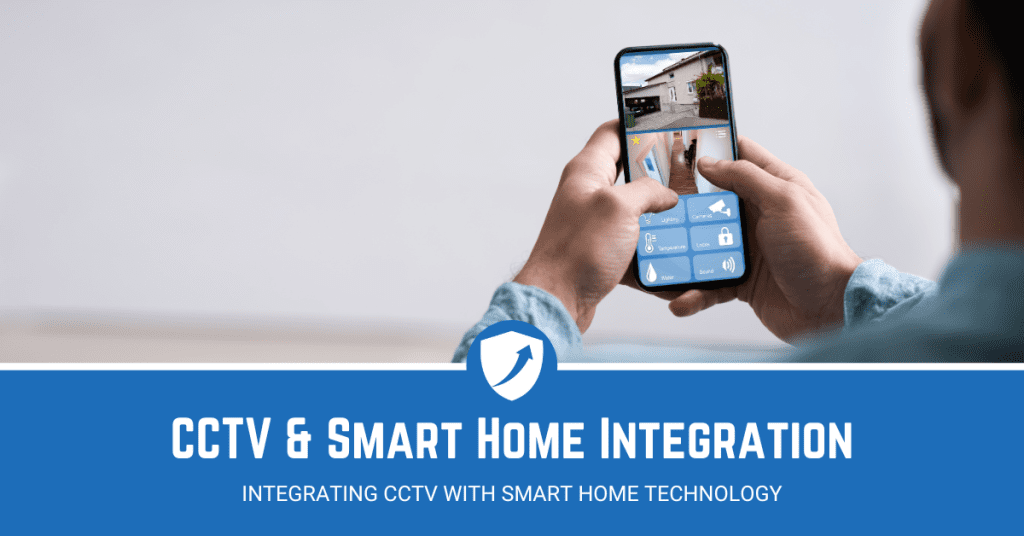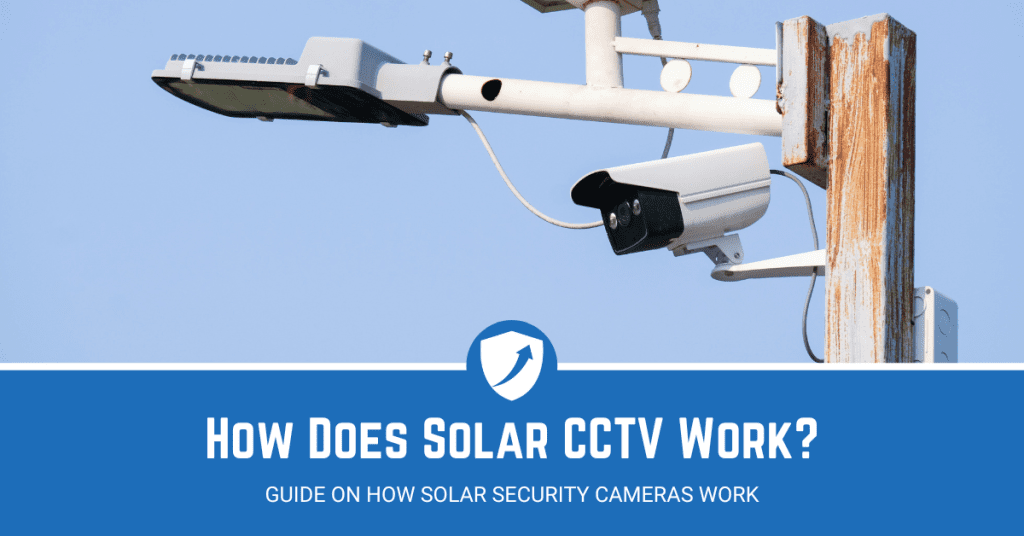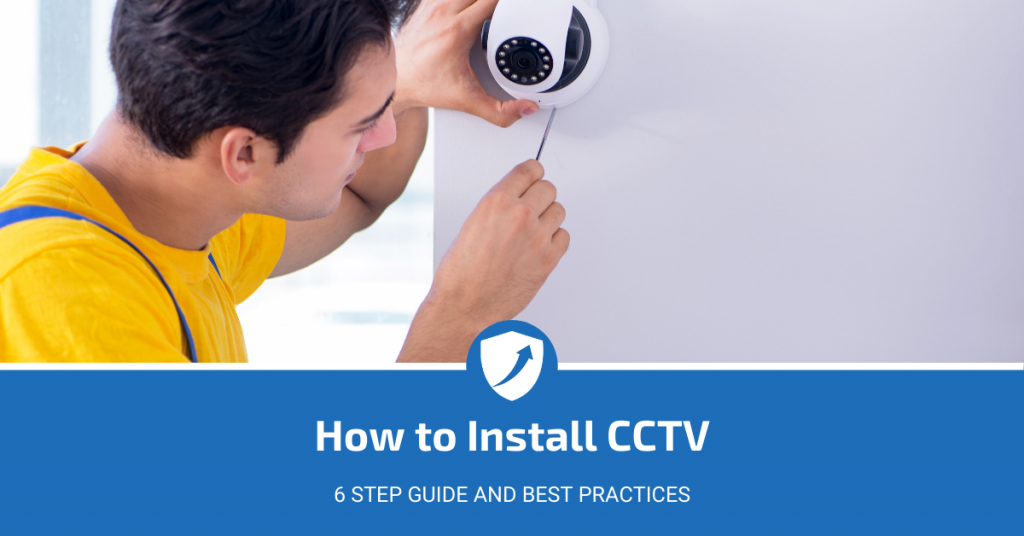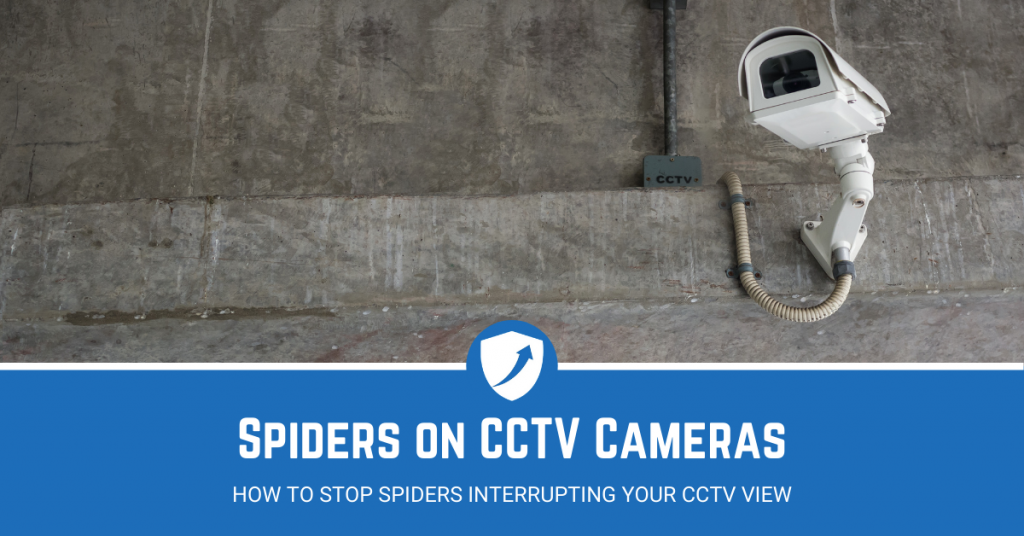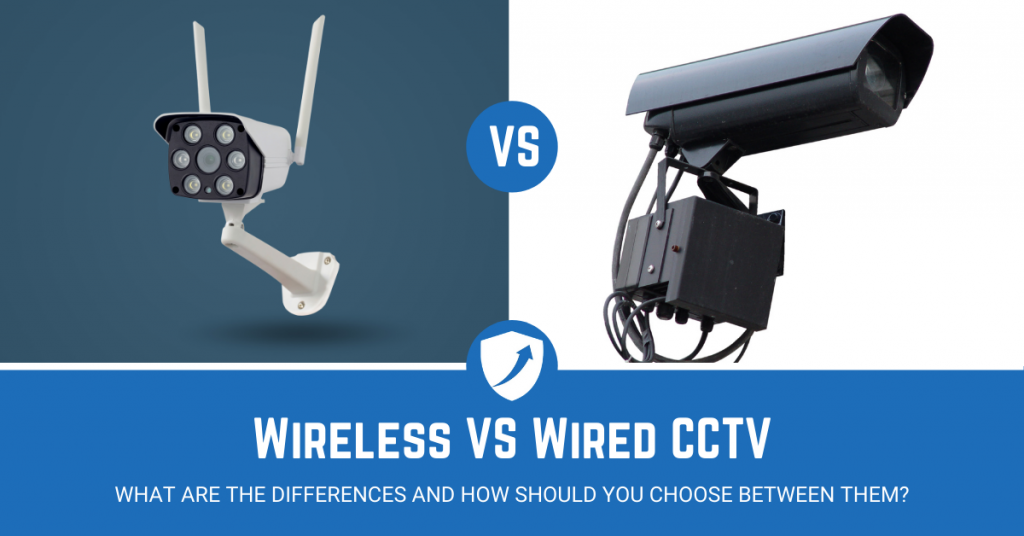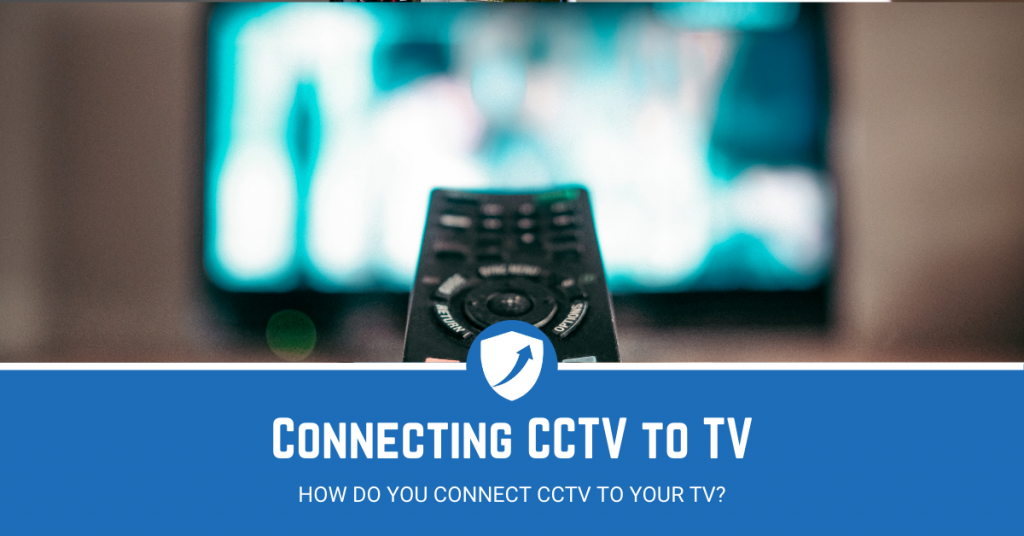With the way the security industry has been going, a lot more companies are interested in having surveillance technology and want to be able to easily access the feeds wherever they are.
Due to the shifts in how we work and how businesses conduct their operations, there has been a massive increase in internet compatible CCTV cameras and a push towards wireless cameras.
Wireless cameras have become very common across the industry as a whole, and they come with a wide assortment of benefits from easier installation to placement flexibility.
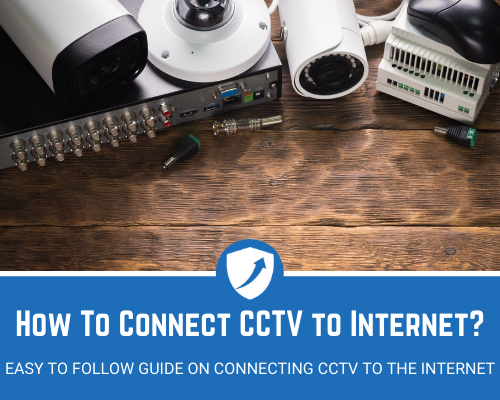
In this blog, we are going to briefly cover how to connect CCTV to the internet, what you will need to set up your connection and some other useful information.
- CCTV to Internet Overview
- Things You Will Need to Set Up CCTV to Your Internet
- How to Set Up CCTV to Your Internet
- CCTV to Internet Summary
What's in this Guide?
What You Need to Know About CCTV and the Internet
CCTV to Internet Basics
Contrary to what most people think, CCTV cameras can be simplified into two major categories, wired and wireless, there are a lot of different sub-categories within these, but it is as simple as that on the surface.
A wired CCTV camera typically uses a connection called a Coaxial cable which transfers the raw footage to a video recorder which is stored on a local hard drive.
Whereas a wireless camera will use the Local Area Network (LAN) or WiFi to send the data either straight to the cloud or a similar video recorder such as a DVR or NVR.
Each CCTV setup is a little different, but there is normally a lot of overlap between models and manufacturers. If you are looking to connect your CCTV to the internet you will need to look at a wireless CCTV camera.
Factors to Consider When Looking at CCTV and the Internet
Some questions you may want to ask yourself when you are thinking about installing wireless CCTV cameras to connect to the internet are below. This is not a definitive list, just some food for thought before you take the plunge.
How good is the internet connection?
This will have a big impact on your camera feeds and their reliability, so if you have a slower connection, you may want to look at a wired option. This may be a factor if you are installing outdoor cameras away from your main building, for instance.
Do we want to access the feeds around the clock?
A wireless CCTV system allows you to access your camera feeds at any point, you do not have to physically be at the security desk looking at the CCTV monitors. So if you want access any time of day or night, this is for you.
Will the feeds be checked remotely? Or on site?
If you have an around the clock security team who are on site, then you may not need to have remotely accessible cameras and having a traditional CCTV system may be more useful to you. If you want remote access a wireless system that connects over the internet will be your preference.
How many cameras do we want to install?
Knowing how many feeds you will have and the number of cameras you will need to secure your location/s could impact which system you choose. As a rule, wireless is a lot more affordable as it can be installed by anyone, whereas traditional systems often require expert help.
Will the locations we want the cameras get a good enough signal?
As we have touched upon, you will want to ensure you have a good signal in all of the locations you want to install your wireless CCTV cameras. Not being able to connect to the internet in one of the camera placement areas will render it useless.
Note: If you are interested in connecting your CCTV to a TV, CCTV to a computer or how to connect CCTV to phone, check out our previous blogs
Benefits of Using the Internet for CCTV
We have briefly touched on a couple of the benefits in the above sections, so to summarise some of the reasons people choose to connect CCTV to the internet are below.
Accessible Around the Clock – with a CCTV network that is connected to the internet, you will be able to access your feeds at any time you want or anywhere in the world.
Instant Notifications – a lot of the wireless CCTV cameras and systems come with a linked app or are compatible with some form of notifications. This means you can get a message or a notification when there is suspicious activity or movement on one of your feeds.
Reliable – cameras that use the internet utilise much newer technology, and are highly reliable as a rule of thumb. Due to data compression and advanced encryption, the only thing that will affect their performance is a slow connection.
Simple Management – CCTV cameras that use the internet are designed to be very user-friendly and simple for everyone to use. They often come with additional features that analogue cameras do not have, such as notifications, custom settings and false alarm detection.
Supplies You’ll Need for Connecting CCTV to Internet
CCTV Cameras – if you are looking at connecting your cameras to the internet, you have to ensure you have compatible models. If you pick a wired camera, for instance, they will connect to a video recorder and monitor and not work via the internet. Choosing an IP camera is most people’s first port of call.
Stable WiFi Connection – needless to say, without a good internet connection you will struggle to have a reliable camera feed. This may affect whether or not you pick a wireless camera, as you may not be able to get the connection where you want to place it.
Mobile App or Site – obviously, with an atypical setup, such as this, you will need to have a smartphone with an app, or a site you can log into so you can check your feeds. Most of the cameras will come with some form of app or place you can access your footage.
How to Connect CCTV to Internet
Let’s look at how to quickly and easily connect your CCTV camera to the internet. Different models will be set up in various ways, but the broad steps are the same.
Connect CCTV to Internet
Step 1: Find the right cameras for you
With so many options on the market, you will be spoilt for choice and will have a lot of affordable cameras that you can choose from. Always do your research and pick cameras that have good reviews, fall within your price range and have the features you are looking for.
Features such as instant notifications, human detection, false alarm prevention and night vision are often what people look for when choosing their cameras.
Step 2: Decide where you want to install the cameras
Once you have chosen your cameras you will want to think about where you want to deploy them. Factors such as indoor or outdoors, or field of view might play a part in your choices.
For instance, having a night vision camera that reaches 100m might not be needed if you want a CCTV camera inside your front entrance.
Step 3: Check the connection
You will want to see if the internet speed where you are going to install your cameras is reliable and quick enough to support high definition video. There are a few options on how to do this, one of the easiest is to do a speed test of your internet in the areas you are going to put your cameras.
Note: if your connection is very sporadic it may be worth exploring analogue CCTV camera options instead of wireless.
Step 4: Install the cameras
Once you are comfortable with where your cameras are going to be placed and that the signal is strong enough, you can physically install the cameras. You can always adjust the angles or even the placement later as wireless cameras are less committed to the location.
As we have alluded to, wireless CCTV cameras connect wirelessly to the network, but some may still have to be plugged into power.
There are also other solar powered security camera options as well as battery powered units.
Step 5: Connect the cameras to the internet
Now you have your cameras in place you can connect them to the internet, this is often done via the accompanying app or there are sometimes options via smart homes too, such as Google Home or even Alexa.
The app, site or paperwork that came with the cameras will walk you through the exact steps for your model so you can connect to the internet.
Connecting CCTV to Internet Summary
As you can see, it is fairly straightforward to connect CCTV to the internet and with the advances in both the technology and its ease of installation wireless CCTV cameras are accessible to any size business.
Hopefully, now you are armed with more information on how to set up your CCTV wirelessly and connect to the internet, some of the factors to consider and some benefits of installing wireless CCTV.
We post regular content on CCTV and security, aimed at everyone from beginners to industry veterans. As a whole, the security industry can be filled with jargon and overly complicated, so we aim to make any topic more digestible.


